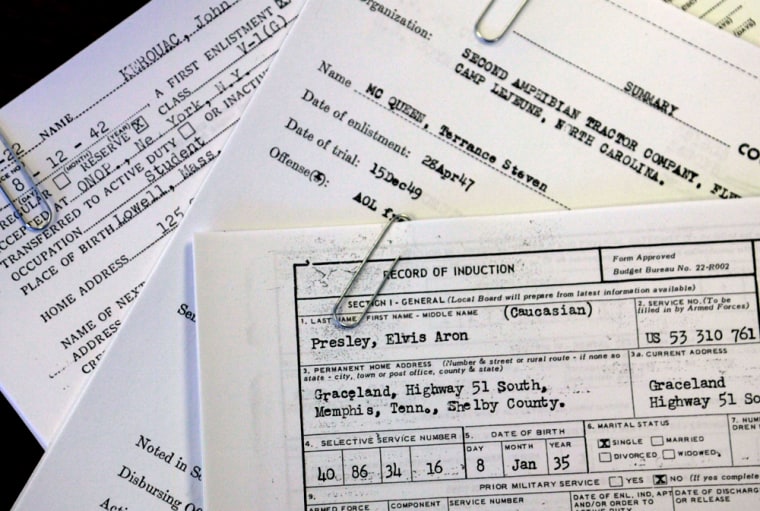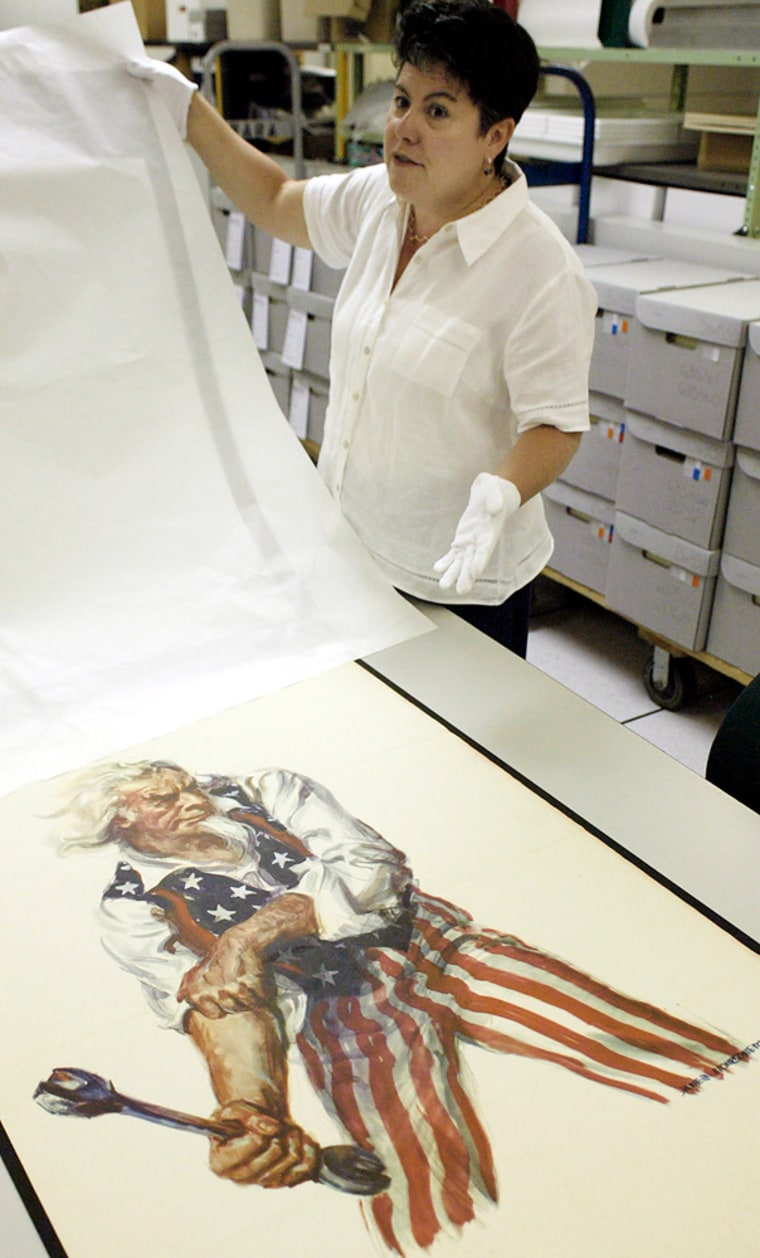When Elvis Presley entered the Army, a fretful public launched a letter-writing campaign.
“Will you please, please be so sweet and kind as to ask Ike to bring Elvis Presley back to us from the Army? We need him in our entertainment world,” pleaded one 1958 letter from a Sacramento, Calif., couple to then-first lady Mamie Eisenhower.
The anxious missive is among documents included in the 1.2 million military personnel files the National Archives will open to the public Saturday for the first time.
Among the documents are records related to famous politicians, military leaders — and at least one rock ’n’ roll star. The bulk, however, relate to former enlisted personnel in the Navy from 1885 to 1939, or in the Marines from 1906 to 1939.
The National Personnel Records Center, located in this St. Louis suburb, is highlighting the files of 150 prominent people who served in the military and died at least a decade ago, including several presidents, famous writers, professional athletes and military figures.
Whither Elvis?
Elvis’ time in the military sparked high interest. Parents of enlisted men wrote letters, too, worried the star would get preferential treatment or early release.
“I am sure us poor people can do without his singing and rock and roll until he serves his country just like my son has to,” an Oak Park, Ill., mother wrote to a congressman.
While the files provide a glimpse of social history, they also cross into the world of politics, literature, sports and entertainment.

John F. Kennedy’s file, for instance, has an account from the much-studied sinking of the PT 109, the Navy patrol torpedo boat he commanded as a lieutenant that sank after being rammed by a Japanese destroyer off the Solomon Islands.
Writer Jack Kerouac, who enlisted in the Navy, was confined to a military hospital for a time in 1943 while psychiatrists tried to determine if he had a mental disorder.
“Patient’s father, Leo A. Kerouac, states that his son has been ‘boiling’ for a long time,” one entry notes.
Steve McQueen, AWOL Marine
Years before filming “The Great Escape,” Terrance Steven McQueen was placed under military arrest for being AWOL while in the Marines. Lt. Jackie Robinson’s file captures racial barriers he encountered, noting he checked with the Special Service Branch and learned there were no openings for black officers there.
Bryan McGraw, the center’s assistant director for archival programs, said there are about 56 million records relating to inactive military personnel at the center. They usually are available only to the veteran, next of kin, the agency that created the record, or by approved special request.
The Defense Department and the National Archives Records Administration agreed in 1999 to work to release some documents because of interest from the public and researchers.
“I think those records will help the average American trying to explore genealogy, a family past,” said Michael Pavkovic, the diplomacy and military studies director at Hawaii Pacific University in Honolulu.
